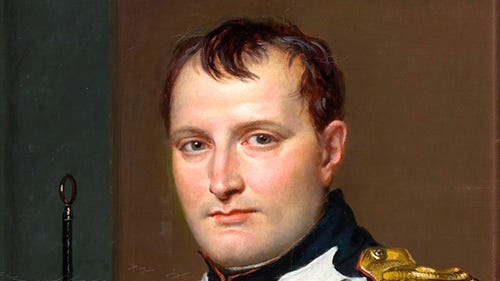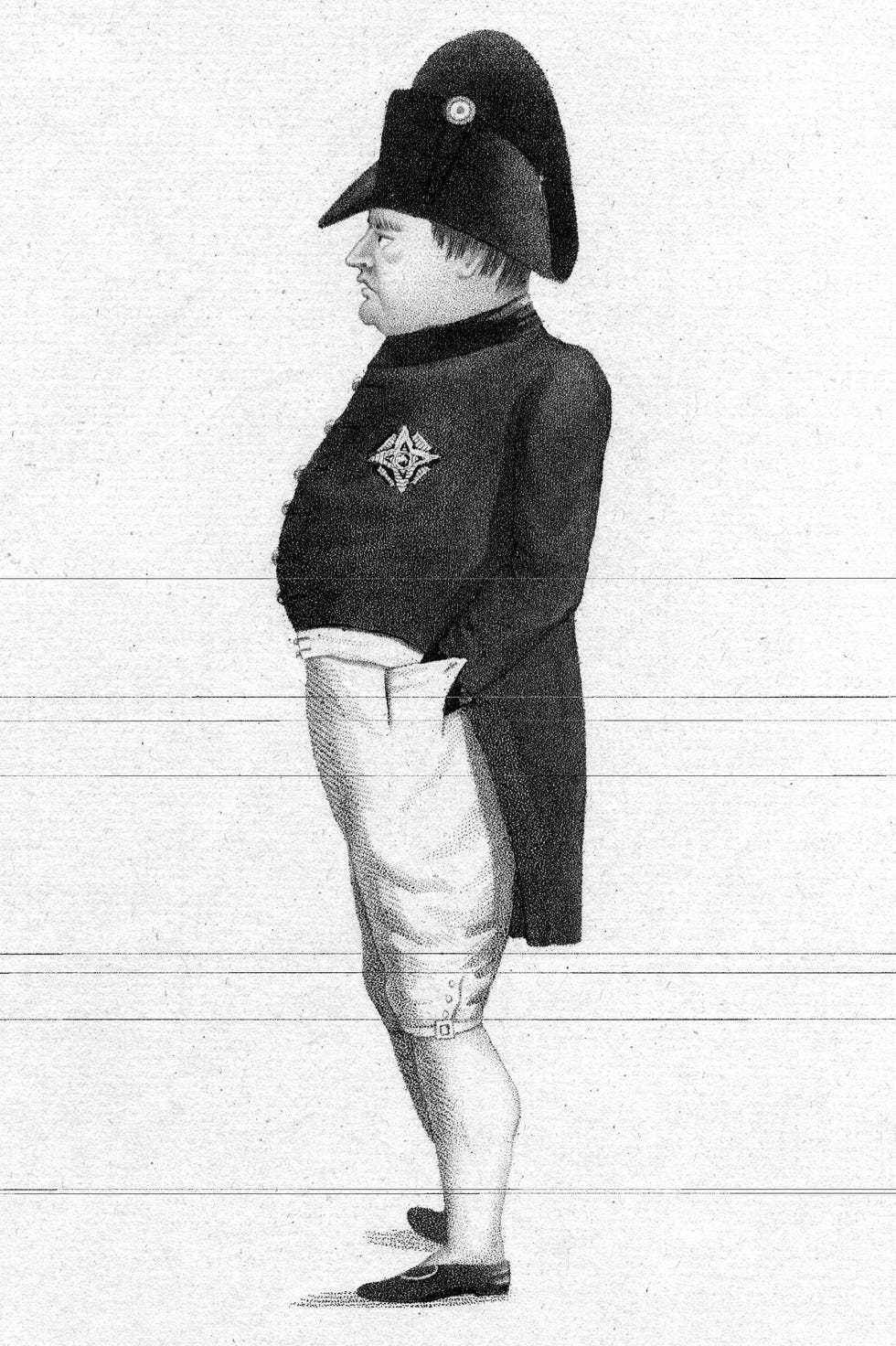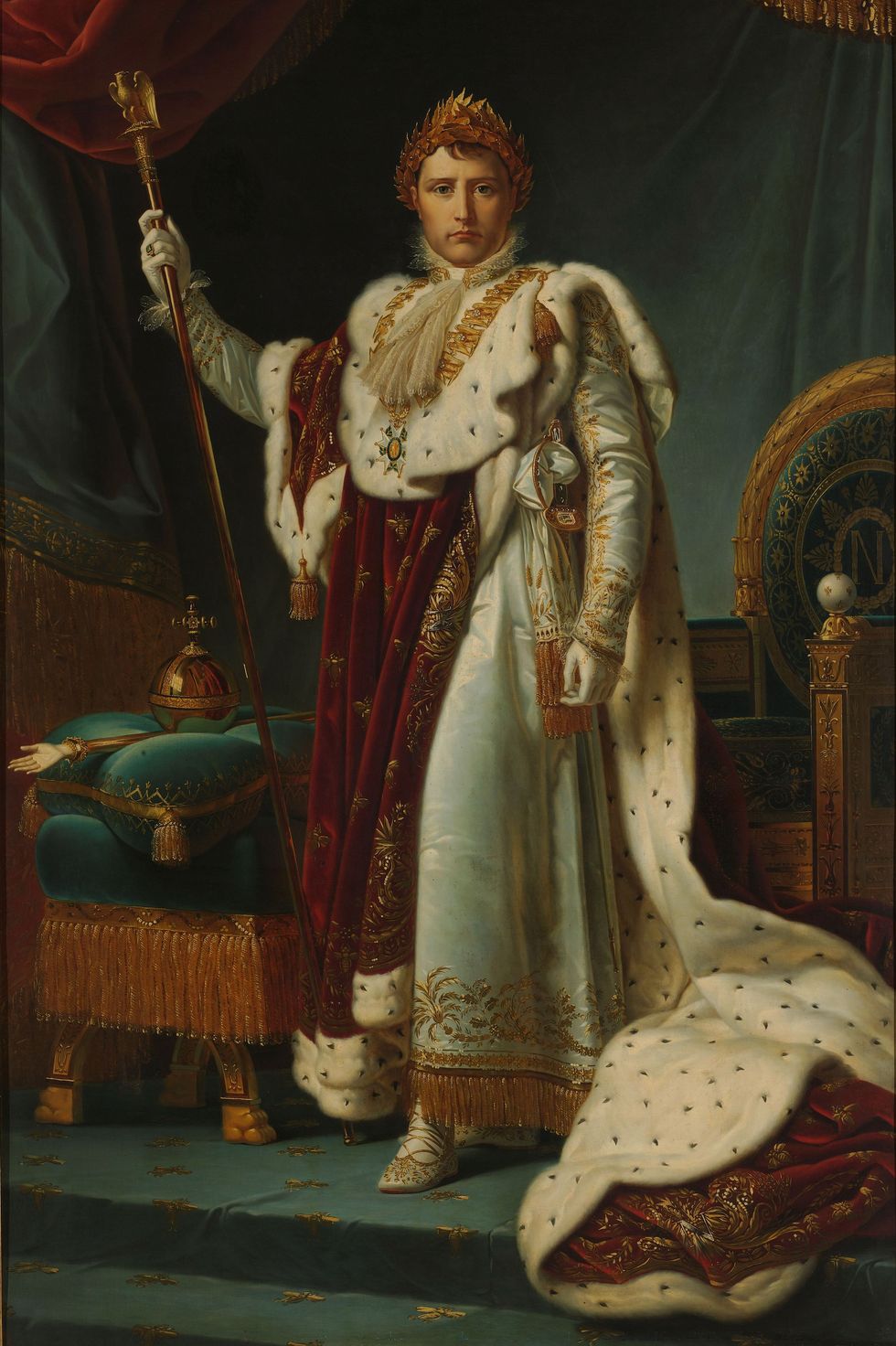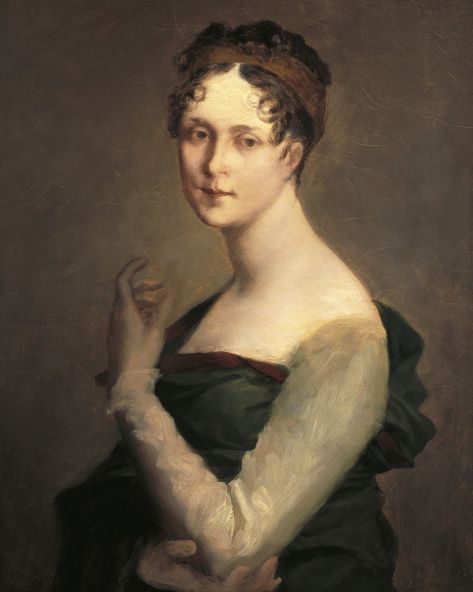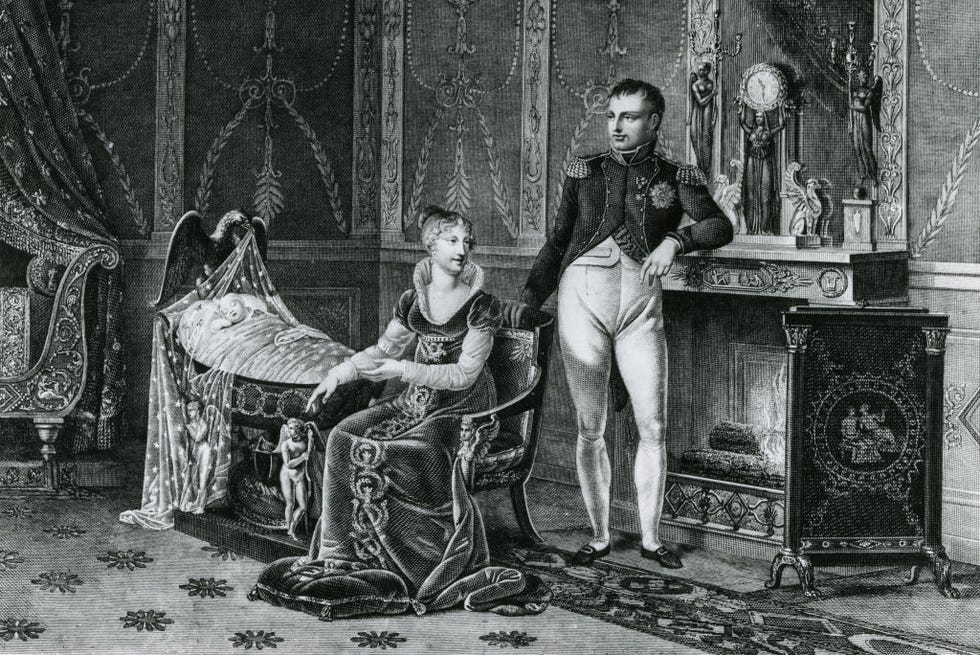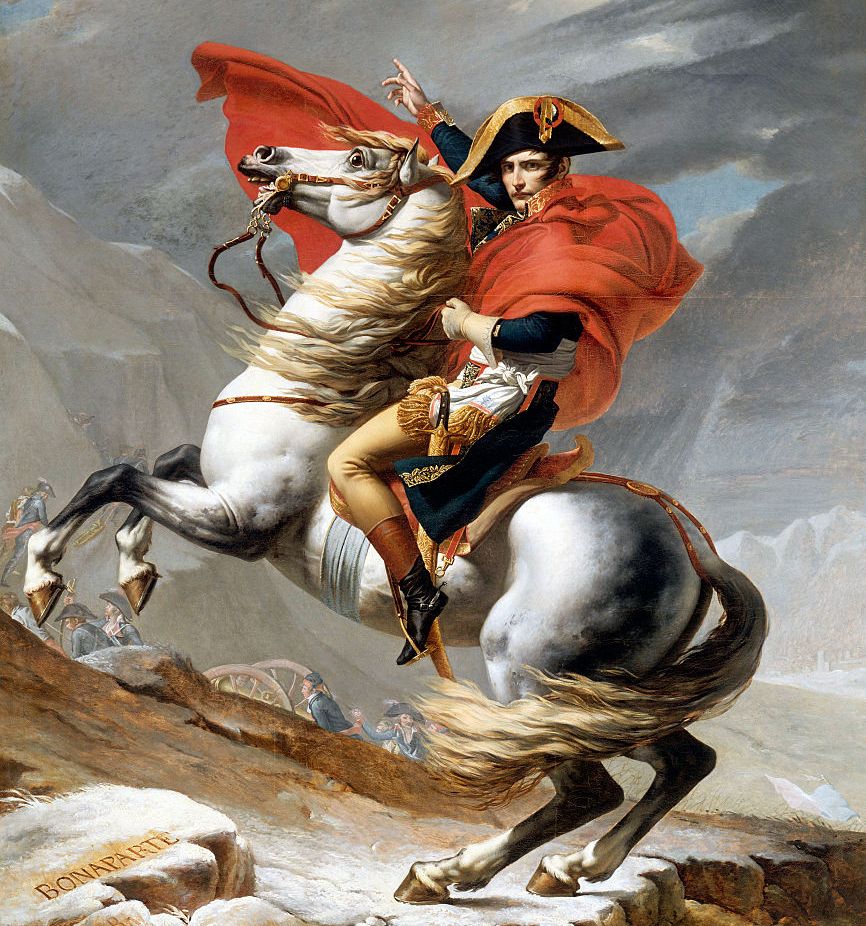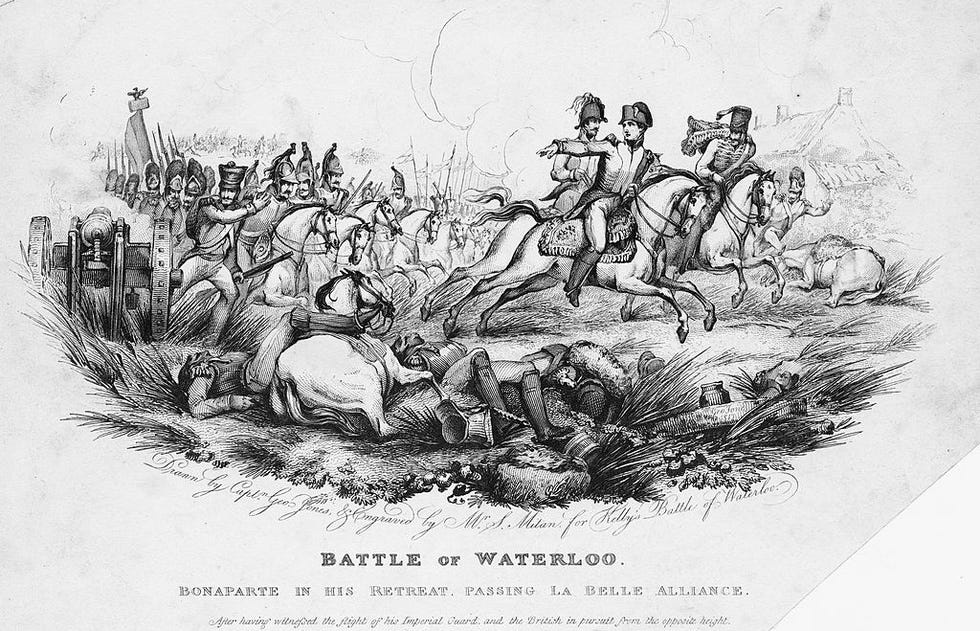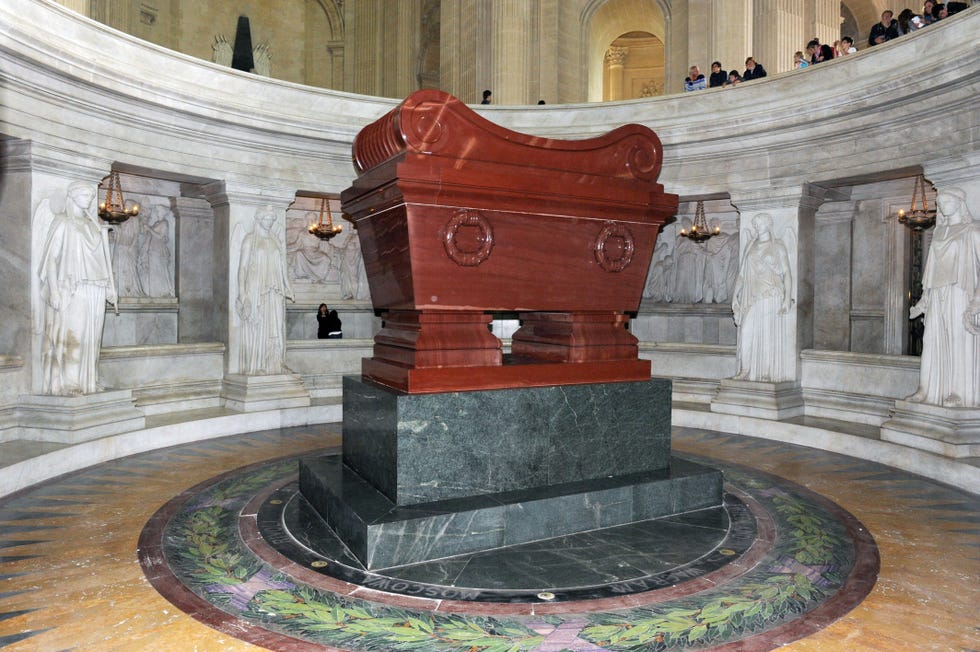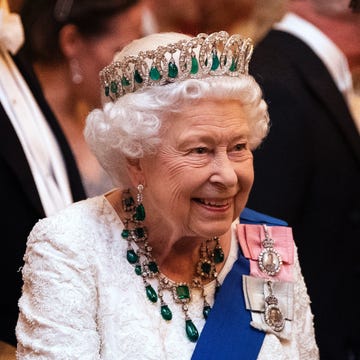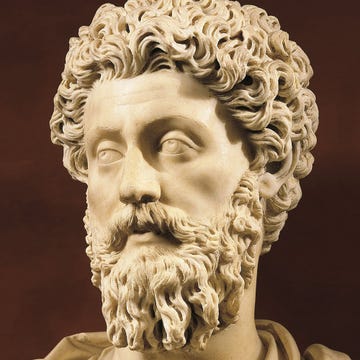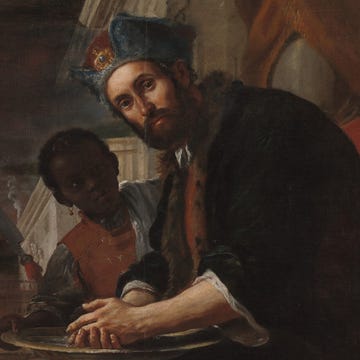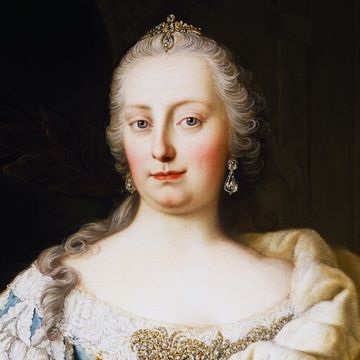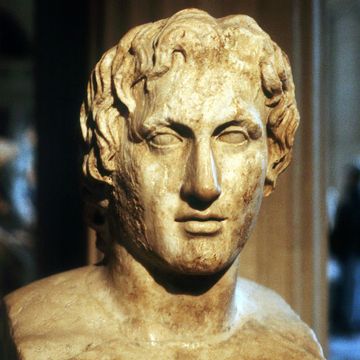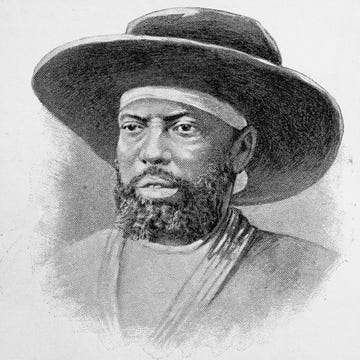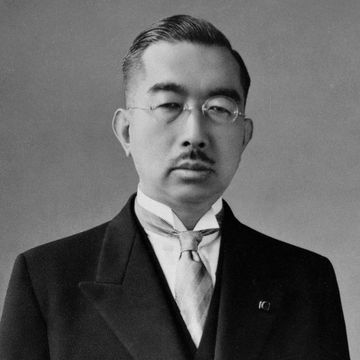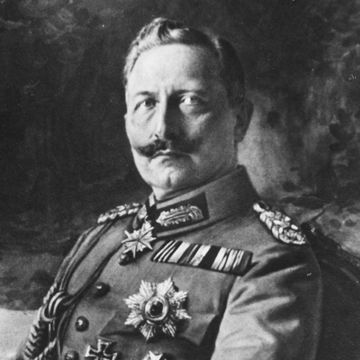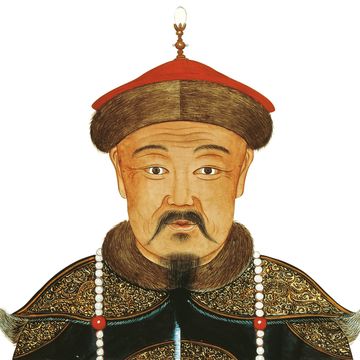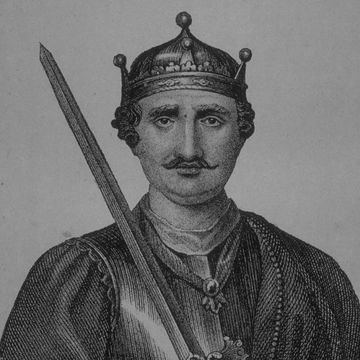1769-1821
Latest News: Napoleon Movie in Theaters Now
Legendary French General Napoleon Bonaparte has been the subject of many movies, and the latest is director Ridley Scott’s new biopic simply titled Napoleon. The movie, now in theaters, stars Joaquin Phoenix as Napoleon and Vanessa Kirby as his wife Josephine. In addition to depicting the famed military leader’s rise to French emperor, the movie focuses heavily on Napoleon and Josephine’s tumultuous relationship.
Napoleon has received some flack for its historical inaccuracies, such as showing the titular character shooting at pyramids. “If you want to really understand Napoleon, then you should probably do your own studying and reading,” Phoenix previously told Empire magazine. “Because if you see this film, it’s this experience told through Ridley’s eyes... What we were after was something that would capture the feeling of this man.”
Who Was Napoleon Bonaparte?
French General Napoleon Bonaparte was one of the world’s greatest military leaders who became the first emperor of France, from 1804 to 1815. Born on the Mediterranean island of Corsica, he attended military schools in France and eventually embraced his adopted home. Bonaparte steadily rose to power in the tumult of the French Revolution before seizing power in a 1799 coup. He was elected consul for life in 1802, then proclaimed the French emperor two years later. As a political leader, Bonaparte broadly transformed French society, most notably ushering in the Napoleonic Code that still serves as the basis of civil codes around the world today. During the Napoleonic Wars, the famed military tactician expanded France’s footprint before a string of critical losses forced him into exile. Bonaparte spent the final years of his life on the remote island of St. Helena, where he died in 1821 at age 51.
Quick Facts
FULL NAME: Napoleon Bonaparte
BORN: August 15, 1769
DIED: May 5, 1821
BIRTHPLACE: Ajaccio, Corsica
SPOUSES: Josephine de Beauharnais (1796-1809) and Archduchess Marie-Louise (1810-1821)
CHILDREN: Charles, Alexandre, and Napoleon II
ASTROLOGICAL SIGN: Leo
HEIGHT: 5 ft. 7 in.
Early Life and Military Education
Napoleon Bonaparte was born Napoleone Buonaparte in Ajaccio, on the French island of Corsica, on August 15, 1769. He was the fourth, and second surviving, child of Carlo Buonaparte, a lawyer, and his wife, Letizia Ramolino. Napoleon eventually had seven surviving siblings.
Around the time of Napoleon’s birth, the French’s occupation of Corsica had drawn considerable local resistance. Napoleon’s father had at first supported the nationalists, siding with their leader, Pasquale Paoli. But after Paoli was forced to flee the island, Carlo switched his allegiance to the French. After doing so, he was appointed assessor of the judicial district of Ajaccio in 1771, a plush job that eventually enabled him to enroll his two sons, Joseph and Napoleon, in France’s College d’Autun.
In 1779, young Napoleon began attending the military college of Brienne, where he studied for five years. He excelled as a student yet struggled to fit in with his classmates who were the children of French nobles and bullied Napoleon for being a foreigner.
At age 15, Napoleon moved on to the military academy in Paris. While Napoleon was still there, his father died of stomach cancer in 1785. This propelled Napoleon to take the reins as the head of the family. Graduating early from the military academy, Napoleon, now second lieutenant of artillery, returned to Corsica in 1786.
Back home, Napoleon got behind the Corsican resistance to the French occupation, siding with his father’s former ally, Pasquale Paoli. But the two soon had a falling out, and when a civil war in Corsica began in April 1793, Napoleon—now an enemy of Paoli—and his family relocated to France, where they assumed the French version of their name: Bonaparte.
How Tall Was Napoleon?
Napoleon stood about 5 feet, 7 inches tall, making him slightly taller than the average Frenchman of his time.
Much has been made of Napoleon’s height, and legends claim that he was unusually short, giving rise to the term “Napoleon complex,” an inferiority complex sometimes associated with people of short stature. Some historians attribute the myths about Napoleon’s height to British propaganda.
Napoleon’s Rise to Power
Napoleon’s return to France began with a service with the French military, where he rejoined his regiment at Nice in June 1793. The turmoil of the French Revolution, which began four years prior, created opportunities for ambitious military leaders like Napoleon. The young leader quickly showed his support for the Jacobins, a far-left political movement and the most well-known and popular political club from the French Revolution.
A year after France was declared a republic, King Louis XVI was executed in January 1793. Ultimately, these acts led to the rise of Maximilien de Robespierre and what became, essentially, the dictatorship of the Committee of Public Safety. The years of 1793 and 1794 came to be known as the Reign of Terror, in which as many as 40,000 people were killed. Eventually, the Jacobins fell from power, and Robespierre was executed.
Trusted Military Leader
In 1795, the French revolutionary government known as the Directory took control of the country. Napoleon, who had previously fallen out of favor with Robespierre, came into the good graces of the Directory that same year after he saved the government from counter-revolutionary forces. For his efforts, Napoleon was soon named commander of the Army of the Interior. In addition, he was a trusted advisor to the Directory on military matters.
In 1796, Napoleon took the helm of the Army of Italy, a post he’d been coveting. The army—just 30,000 strong, disgruntled, and underfed—was soon turned around by the young military commander. Under his direction, the reinvigorated army won numerous crucial victories against the Austrians, greatly expanded the French empire, and squashed an internal threat by the royalists, who wished to return France to a monarchy. All of these successes helped make Napoleon the military’s brightest star.
Failed Egypt Campaign
On July 1, 1798, Napoleon and his army traveled to the Middle East to undermine Great Britain’s empire by occupying Egypt and disrupting English trade routes to India. But his military campaign proved disastrous: On August 1, Admiral Horatio Nelson’s fleet decimated Napoleon’s forces in the Battle of the Nile.
Napoleon’s image and that of France were greatly harmed by the loss, and in a show of newfound confidence against the commander, Britain, Austria, Russia, and Turkey formed a new coalition against France. In the spring of 1799, French armies were defeated in Italy, forcing France to give up much of the peninsula. That October, Napoleon returned to France as his troops continued fighting.
Coup of 18 Brumaire
Shortly after his return to France, Napoleon participated in an event known as the Coup of 18 Brumaire. The bloodless coup d’etat, heavily orchestrated by Emmanuel Joseph Sieyès, overthrew the newly Jacobin-controlled Directory on November 9, 1799. Napoleon and Sieyès ushered in a new government called the Consulate to be led by three members—themselves and Pierre-Roger Ducos. Napoleon’s brother Lucien Bonaparte also assisted the cause.
When Napoleon was named first consul, he became France’s leading political figure in a position that amounted to nothing less than a dictatorship. Under the new guidelines, the first consul was permitted to appoint ministers, generals, civil servants, magistrates, and even members of the legislative assemblies. Sieyès and Ducos were reduced to figureheads. In February 1800, the new constitution was easily accepted.
At the Battle of Marengo in June 1800, Napoleon’s forces defeated the Austrians and drove them from the Italian peninsula. This military victory cemented Napoleon’s authority as first consul.
Napoleon proceeded to transform France’s economy, legal and educational systems, and even the Church, as he reinstated Roman Catholicism as the state religion through the Concordat of 1801. He also negotiated a European peace, partially through the 1802 Treaty of Amiens that struck a (short-lived) truce with the war-weary British.
His reforms proved popular: In 1802, he was elected consul for life, and two years later, he was proclaimed emperor of France on May 18, 1804. He was officially crowned Napoleon I during his coronation at Notre Dame Cathedral on December 2 of that year.
Wives: Empress Josephine and Marie-Louise
As Napoleon was rising in the ranks, his personal life was also taking shape. He met Josephine de Beauharnais, the widow of General Alexandre de Beauharnais (guillotined during the Reign of Terror) and a mother of two children, at a party in 1795. He was quickly smitten and despite her initial reservations—Josephine described Napoleon as “altogether strange in all his person”—they married on March 9, 1796, in a civil ceremony.
Their union was tempestuous from the outset, with Napoleon’s military campaigns forcing him away from home for long periods. Although he often complimented Josephine in letters from the battlefield, both of them engaged in extramarital affairs. Napoleon had at least two children out of wedlock—Charles Léon Denuelle in 1806 and Alexandre Walewski in 1810.
Josephine was known for holding lavish parties and spending money on clothing and property, including the Malmaison estate near Paris in 1799. Despite their arguments, the two stayed together as Josephine maintained a positive perception among the public. When Napoleon crowned himself emperor in 1804, he insisted upon placing a crown upon Empress Josephine as well.
Despite his new title, not all was going to plan for Napoleon. He faced mounting pressure from his family to separate from Josephine, who was in her 40s by this point, because she was unable to give him a legitimate son and, thus, an heir. So in December 1809, Napoleon arranged for the annulment of their marriage.
Following the annulment, Napoleon searched in haste for a new bride. His first choice was Anna Pavlovna, the 15-year-old sister of Russian Tsar Alexander I. But after delays and excuses, he instead selected Archduchess Marie-Louise of Austria, 18, due largely to political motivations. Marie-Louise was the great-niece of Marie Antoinette. She dreaded the idea, writing in her diary that just looking at Napoleon would be the “worst form of torture.” However, she complied and married Napoleon by proxy in a civil ceremony in March 1810.
Marie-Louise gave Napoleon the heir he desired, as the couple had a son—Napoleon II, King of Rome—on March 20, 1811.
Despite his marriage to Marie-Louise, Napoleon continued his correspondence with Josephine and made unannounced personal visits to Malmaison. In 1813, he even brought his young son to meet her, as their struggle to produce an heir “had cost her so many tears.” This stoked jealousy in Marie-Louise, who remained married to Napoleon until his death.
Napoleonic Code
Continuing the societal reforms he made, Napoleon instituted the Napoleonic Code, otherwise known as the French Civil Code, on March 21, 1804. The sweeping set of laws ended the feudal system and addressed property rights, family law, and individual freedoms. It forbade privileges based on birth, declaring all men to be equal and stating that government jobs must be given to the most qualified. Men were entitled to religious freedom and placed in charge of the women and children in their families. Women were largely left without rights, though they did have limited liberties in divorce proceedings.
The Napoleonic Code applied in France and its growing number of territories. Napoleon correctly predicted that his code, more so than his many military victories, would have a lasting legacy. Parts of it are still in use around the world today. The terms of the code are the main basis for many other countries’ civil codes throughout Europe and North America.
Napoleonic Wars
The Napoleonic Wars were a series of European wars lasting from 1803 to Napoleon’s permanent abdication of power in 1815.
In 1803, in part to raise funds for war, France sold its North American Louisiana Territory to the United States for $15 million, a transaction known as the Louisiana Purchase. Napoleon then returned to war with Britain, Russia, and Austria.
In 1805, the British registered an important naval victory against France at the Battle of Trafalgar, which led Napoleon to scrap his plans to invade England. Instead, he set his sights on Austria and Russia, beating back both militaries in the Battle of Austerlitz.
Other victories soon followed, allowing Napoleon to greatly expand the French empire and paving the way for loyalists to his government—including his brothers and other family members—to be installed in Holland, Italy, Naples, Sweden, Spain, and Westphalia.
Invasion of Russia
In 1812, France was devastated when Napoleon’s invasion of Russia turned out to be a colossal failure—and the beginning of the end for Napoleon. Hundreds of thousands of soldiers in Napoleon’s Grand Army were killed or badly wounded: Out of an original fighting force of some 600,000 men, just 10,000 soldiers were still fit for battle.
News of the defeat reinvigorated Napoleon’s enemies, both inside and outside of France. Some attempted a failed coup while Napoleon led his charge against Russia and as the British began to advance through French territories. With international pressure mounting and his government lacking the resources to fight back against his enemies, Napoleon surrendered to allied forces on March 30, 1814.
First Exile
About a week later, on April 6, Napoleon was forced to abdicate power and went into exile on the island of Elba off the Italian coast in the Mediterranean Sea. His exile didn’t last long, as he watched France stumbled forward without him.
In March 1815, Napoleon escaped the island and quickly made his way back to Paris. King Louis XVIII fled, and Napoleon triumphantly returned to power. But the enthusiasm that greeted Napoleon when he resumed control of the government soon gave way to old frustrations and fears about his leadership.
Waterloo
On June 16, 1815, Napoleon led French troops into Belgium and defeated the Prussians; two days later, he was defeated by the British, reinforced by Prussian fighters, at the Battle of Waterloo.
It was a humiliating loss, and on June 22, 1815, Napoleon abdicated his powers for good. In an effort to prolong his dynasty, he pushed to have his young son, Napoleon II, named emperor, but the coalition rejected the offer.
Exile on St. Helena
After Napoleon’s abdication from power in 1815, fearing a repeat of his earlier return from exile on Elba, the British government sent Napoleon to the remote island of St. Helena in the southern Atlantic Ocean. He lived there for the rest of his life.
For the most part, Napoleon was free to do as he pleased at his new home. He had leisurely mornings, wrote often, and read a lot. But the tedious routine of life soon got to him, and he often shut himself indoors.
According to historian Kate Williams’ 2014 book Ambition and Desire: The Dangerous Life of Josephine Bonaparte, Napoleon continued to show great affection for his ex-wife, who died of pneumonia at her Malmaison estate in May 1814. He had portraits of Josephine placed throughout his residence and even ate off plates with her likeness on them.
Starting in 1817, Napoleon’s health began to deteriorate. In early 1821, he was bedridden and growing weaker by the day. That April, he dictated his last will: “I wish my ashes to rest on the banks of the Seine, in the midst of that French people which I have loved so much. I die before my time, killed by the English oligarchy and its hired assassins.”
Death and Tomb
Napoleon died on May 5, 1821, on the island of St. Helena at age 51. Allegedly, he uttered his ex-wife Josephine’s name as his final word.
During his final weeks, he experienced symptoms such as vomiting, incessant hiccups, and blood clots. Physicians who conducted his autopsy ruled stomach cancer, exacerbated by bleeding gastric ulcers, as the cause of Napoleon’s death. According to PBS News Hour, Napoleon’s cancer was in an advanced state, and his family history of gastric carcinomas supported the autopsy results.
However, researchers have posited alternative theories regarding his demise. In 1961, Swedish dentist Sten Forshufvud and Drs. Hamilton Smith and Anders Wassen analyzed a sample of his hair and published an article suggesting he might have died from arsenic poisoning. Although other experts have rebuffed this theory, it has led to conspiracies surrounding Napoleon’s death.
Despite what he requested in his last will, Napoleon was initially buried on St. Helena on May 9, 1821, in the Geranium Valley, now known as the Valley of the Tomb. In 1840, he was exhumed by order of French King Louis-Phillippe, and Bonaparte’s remains were transferred back to mainland France, arriving on December 15.
Napoleon’s tomb is located in Paris in the Dôme des Invalides. Originally a royal chapel built between 1677 and 1706, the Invalides were turned into a military pantheon under Napoleon’s reign. In addition to Napoleon Bonaparte, several other French notables are buried there, including: Napoleon II, the King of Rome and Napoleon’s son; Napoleon’s brothers Joseph and Jérôme Bonaparte; Generals Henri-Gratien Bertrand and Géraud-Christophe-Michel Duroc; and the French Marshals Ferdinand Foch and Hubert Lyautey.
Napoleon Movies
Not surprising given his place in world history, Napoleon has appeared on the big screen many times with depictions ranging from purposefully humorous to based in realism.
Marlon Brando and Dennis Hopper were cast as Bonaparte in the 1950s movies Désirée (1954) and The Story of Mankind (1957), respectively. The general also appears in films such as Waterloo (1970), Time Bandits (1981), and The Count of Monte Cristo (2002).
In terms of more fantastical portrayals, Napoleon is a character in the 1989 cult comedy Bill and Ted’s Excellent Adventure, in which the title characters played by Alex Winter and Keanu Reeves decide to abduct historical figures for their high school project through the use of time travel. He also appears as an antagonist in the 2009 sequel Night at the Museum: Battle of the Smithsonian.
In 2023, director Ridley Scott helmed a new biopic simply titled Napoleon that released in theaters on November 22. The movie stars Joaquin Phoenix as the French emperor and Vanessa Kirby as Josephine and focuses heavily on their tumultuous relationship. Napoleon marked a reunion for Phoenix and Scott, who worked on the 2000 classic Gladiator also starring Russell Crowe.
Quotes
- I am never angry when contradicted; I seek to be enlightened.
- I wish my ashes to rest on the banks of the Seine, in the midst of that French people which I have loved so much. I die before my time, killed by the English oligarchy and its hired assassins.
- A revolution is an idea which has found its bayonets.
- A great people may be killed, but they will not be intimidated.
- He who fears being conquered is certain of defeat.
- Love does more harm than good.
- A man is not dependent upon his fellow creature, when he does not fear death.
- It is the cause, and not the death that makes the martyr.
- Even when I am gone, I shall remain in people’s minds the star of their rights, my name will be the war cry of their efforts, the motto of their hopes.
- Men of genius are meteors, intended to burn to light their century.
- Glory is fleeting, but obscurity is forever.
- In choosing a wife, a man does not renounce his mother, and still less is he justified with breaking her heart.
Fact Check: We strive for accuracy and fairness. If you see something that doesn’t look right, contact us!
The Biography.com staff is a team of people-obsessed and news-hungry editors with decades of collective experience. We have worked as daily newspaper reporters, major national magazine editors, and as editors-in-chief of regional media publications. Among our ranks are book authors and award-winning journalists. Our staff also works with freelance writers, researchers, and other contributors to produce the smart, compelling profiles and articles you see on our site. To meet the team, visit our About Us page: https://www.biography.com/about/a43602329/about-us
Tyler Piccotti first joined the Biography.com staff as an Associate News Editor in February 2023, and before that worked almost eight years as a newspaper reporter and copy editor. He is a graduate of Syracuse University. When he's not writing and researching his next story, you can find him at the nearest amusement park, catching the latest movie, or cheering on his favorite sports teams.
